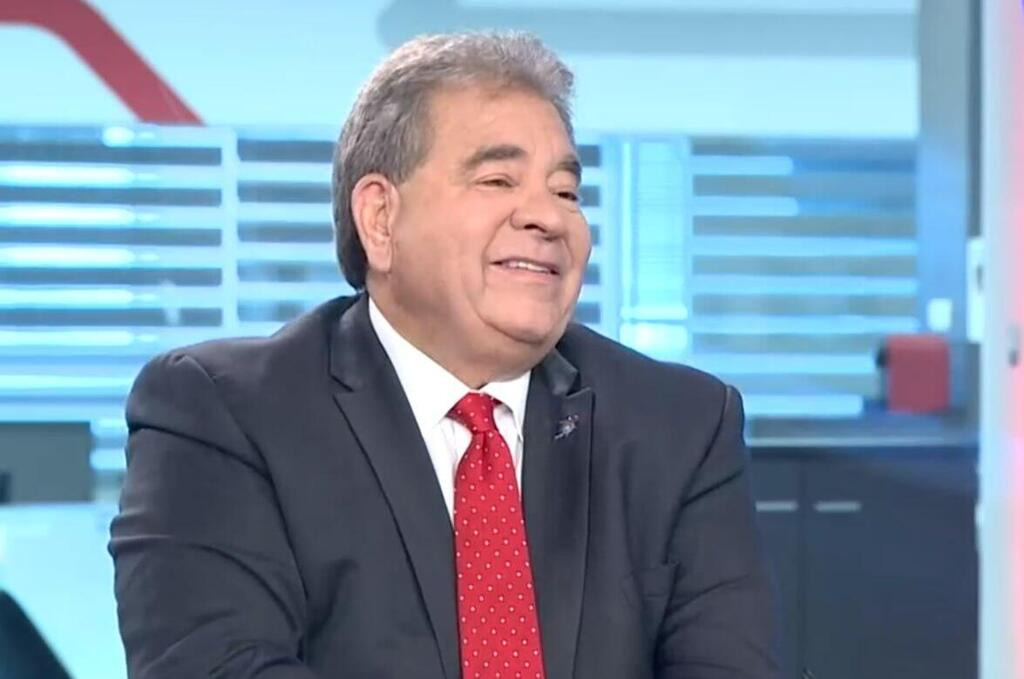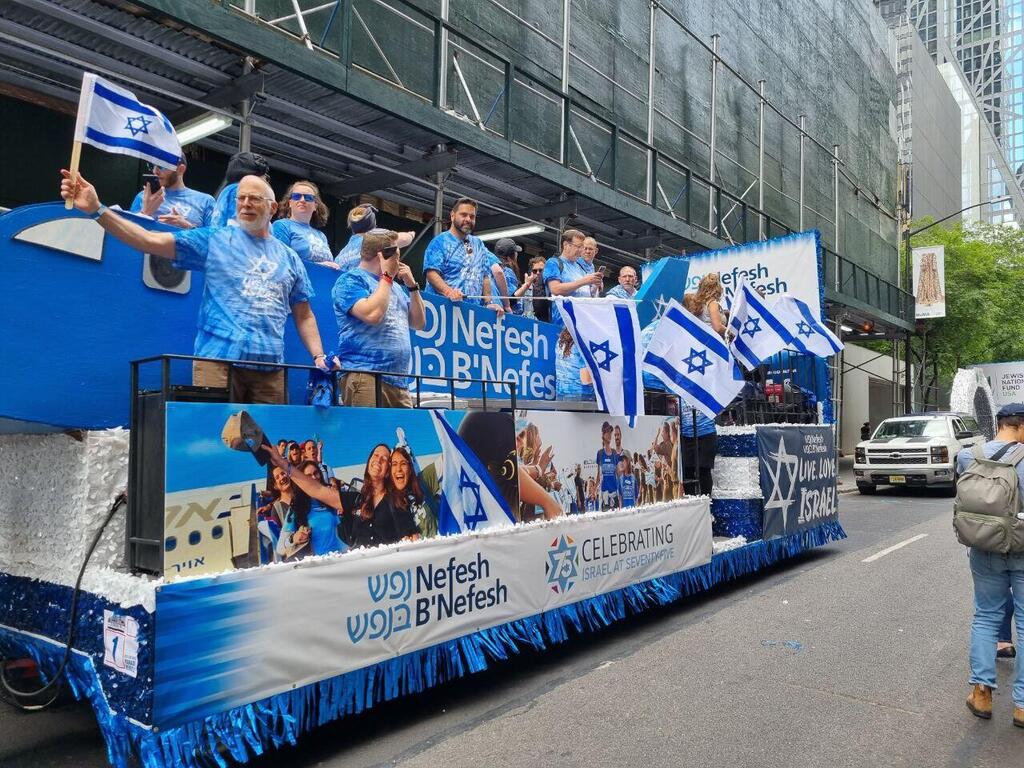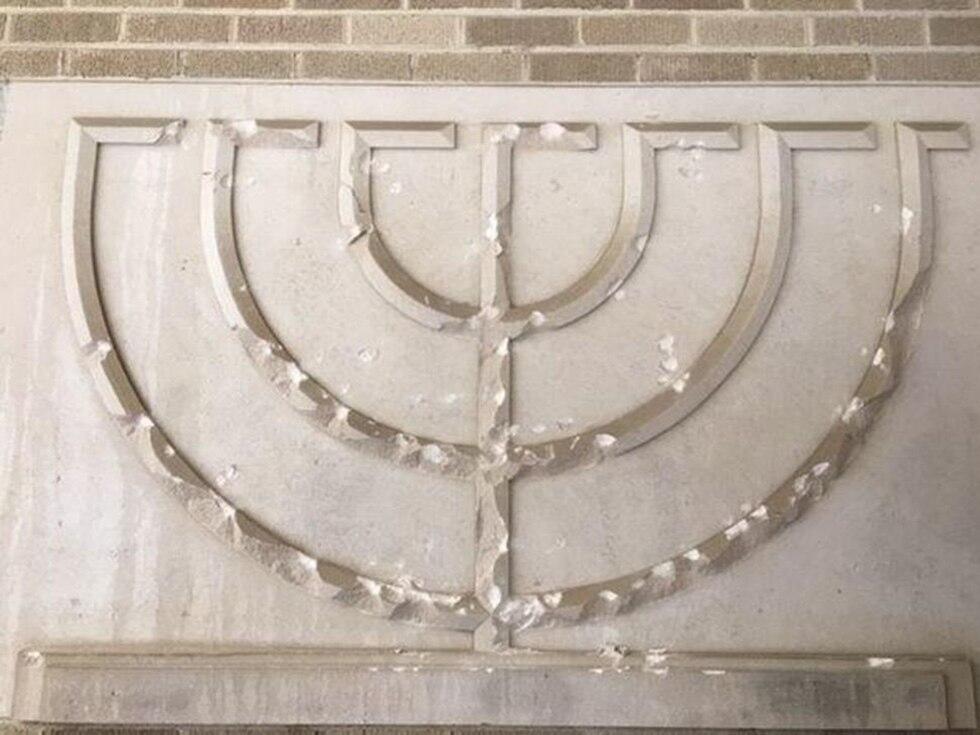Getting your Trinity Audio player ready...
Ynet interview with Russell Robinson
(Video: Yaron Brener)
Russell Robinson, CEO of Jewish National Fund (JNF)-USA, personally feels the distance that has emerged between the Jewish communities in the United States and Israel, even if it doesn’t affect the volume of donations the organization receives.
More stories:
"Our damage is that we have stopped having a conversation about who we are, and instead we’re having a conversation about political parties," said Robinson, who is visiting Israel, during an interview with Ynet.
3 View gallery


JNF-USA CEO Russell Robinson feels the distance that has emerged between the Jewish communities in the United States and Israel
(Photo: Yaron Brener)
"You don't start a conversation with a new friend and say, 'Tell me about your political party and let me tell you who doesn’t like it,'" he added. "You start off with who your family is, what your heritage is, what’s your connection, who you like.”
When asked about the reason behind his current visit to Israel, Robinson explained that: "We’re here building a project we call the World Zionist Village, which will spread across 62 dunams of land in Be'er Sheva.”
“It’s a space to bring our Jewish world together for a new conversation about shared values and common destiny, and not about right or left, religious or non-religious, and we’re part of the planning process,” he explained.
He noted that "this is a $350 million project. It’s going to be funded from philanthropy from around the world, not just in the U.S., from people in Israel as well.”
“It’s a place that will bring people together from high school, gap years, years of service, post-collage and adults.” So far, JNF-USA has raised $100 million a year toward the project.
Have you noticed a change in recent months for investments in Israel since the proposed judicial reform?
"No. As a matter of fact, the opposite. We’ve seen over the last two years 32,000 more donors to our campaign."
But we see an internal conflict within the Jewish community in the U.S.
"I think it’s much more broadcast than it is in reality; We’re getting 500 to an event, 800 people, we have sold out events. Young people ages 22-40 is the fastest-growing part of our donor demographic.”
"There are people that want to be part of the conversation, but if you want to be part of our organization, get to know what the conversation is about. It's a worthy conversation, but it’s not our relationship with the land and people of Israel," he added.
Do you sense an increase in antisemitism in the U.S. in recent years?
"Of course. I don’t know if it’s an increase or if social media and broadcasting opportunities make it so. I grew up in a small town in Texas so I know antisemitism. There was a swimming pool where I grew up in that said ‘Mexicans and Jews get two times a year,' so antisemitism has always been there.”
“Obviously, we have new platforms for people to be able to express themselves. It means we have to express ourselves differently, not anti-them, but positive who we are,” Robinson explained.
“Part of who we are as Jews was seen as we walked in a parade in New York and thousands were cheering for us. We bring 16,000 teenagers to Israel every year for a semester abroad; 51% of them say that their parents haven’t been to Israel."
How many of them are staying?
"They’re only here for 18 weeks, but if you look up how many people end up making aliyah, it’s quite a bit. Some are serving as lone soldiers, living in Israel and starting businesses here. At that age, we need to build a new conversation; it's not a relationship that you can start at 40."
First published: 20:51, 06.11.23






